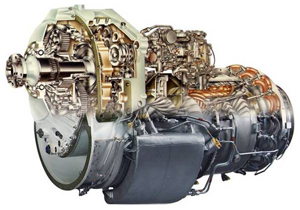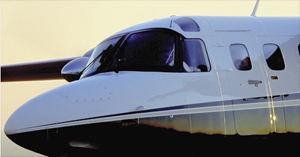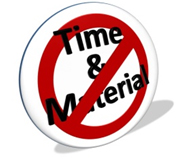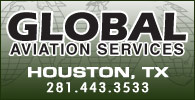IS AN ENGINE MAINTENANCE PLAN FOR YOU?

By Chad Ahrens
Propulsion International

Over the years, engine maintenance plans have come in one flavor. Propulsion International is taking a new approach that is worth exploring. The newly introduced Group Maintenance Plan (GMP) applies to TPE331-10 engine models and above, potentially making it a nice fit for Twin Commander owners.
Let's look at an example. Joe, a Twin Commander owner, has one engine approaching a 2500-hr hot section and the second approaching a 5000-hr overhaul inspection. Joe flies safely, complying with all scheduled inspections and using Honeywell authorized service centers under the time and material invoicing process. All has worked well for the past 10-plus years.
Why change? Let's peel back Joe's current operation and consider the next few years. He carries the risk of unscheduled repairs, which is higher when approaching the overhaul event. Joe's estimate of the cost of the coming inspection - which he bases on what he paid for the last one - may fall way short because Honeywell prices have increased 5 to 10 pct each year. Cost overruns, such as needing a nose cone, can occur at the next inspection,
creating a nose bleed for Joe.

Engine values are becoming a larger percent of the total aircraft value. Under the time and material process, the engine value and therefore the aircraft value reduces with each hour flown.
Joe is carrying all the risk, his costs are increasing, and his asset value is reducing.
All will agree that an engine maintenance plan is nice. It simplifies operations, protects from surprise costs, and limits price escalations. Manufacturers then sell plans at price premiums above the cost of time and material invoicing, as the risk is eliminated. This price premium also eliminates many operators from enrollment.
So what can Propulsion International (PI) do? First, the founders are former Garrett guys who have worked to address the flaws of 331 MSP and to create engine value. More importantly, the program is backed by Honeywell. An engine enrolled in GMP has a serialized account within Honeywell's MSP.
Looking at pricing, instead of a 5000-hr TBO engine cost of $87.23 per hour, GMP is $62.15.
Second, with GMP, Part 91 operators can extend the hot section interval to 3500 hours and the overhaul to 7000 hours. This is accomplished by using PI's interval extension letter from Honeywell and working with your local FAA FSDO to receive the approval.
So, GMP with a 7000-hr TBO is $52.31 per hour. Joe is starting to like
these numbers.
PI has gone a step further. The areas of unscheduled repair risk for a TPE331 are in the hot section inspection - excessive high-temperature wear in the turbine section; gearbox issues involving some of the 150-plus gears, shafts, and bearings; and external components such as fuel control, pump, governor, etc.
Operators can choose to cover these higher-risk areas without the compressor protection. In this case, a not-to-exceed price cap protects from cost overruns at compressor overhaul. Hourly rate is now further reduced to $40.05 per hour with a 7000-hr TBO.
Joe now has a smile like the 331 engine he flies. But what about engine value?
At these rates, Joe is paying less than half the price of MSP and has the risk protection where it is most needed. Better yet, the GMP full coverage price is below the time and material invoice pricing.
This leads us to engine/aircraft values. Since GMP is a lower cost than time and material invoicing, it clearly becomes a positive attribute at the time of aircraft sale.
One other key point for Joe: This is a used aircraft. What if he pays the GMP rate and does not ever reach the scheduled inspection event? PI has a sunset account that returns 90 pct of the unspent scheduled reserves at contract end, or GMP is transferable at aircraft sale.

Should Joe enroll?
He can enroll one or both engines. The engine approaching hot section has a low buy-in cost. Let's look at the engine approaching overhaul. If due now, Joe is looking at a price of $210,000 to $230,000 with Time & Material invoicing. The price will be higher next year because of the manufacturer's price increases. Propulsion International's not-to-exceed price is $193,000, an immediate savings without the risk. If there are hours remaining before the overhaul, the cap price is prorated lower with an early enrollment discount.
No doubt, Joe has something to think about. To begin, he should review the coverage options and enrollment plans. The result of his research could provide him with higher aircraft values, lower maintenance costs, and peace of mind.

For more information contact Propulsion International's Chad Ahrens at [email protected].
Discuss this article in the forums...








